France, officially the French Republic, is primarily located in Western Europe, with overseas regions and territories giving it the largest discontiguous exclusive economic zone globally. It shares borders with several European countries and a maritime border with the UK. Metropolitan France stretches from the Rhine to the Atlantic and from the Mediterranean to the English Channel and North Sea. The country comprises 18 integral regions, including five overseas, covering 632,702 km2 with a population of over 68.6 million (2025 est.). France is a semi-presidential republic, with Paris as its capital, largest city, and cultural and economic center.
1904: Entente Cordiale with the United Kingdom
Since 1904 France has maintained an "Entente Cordiale" with the United Kingdom.
1905: State Secularism Established
In 1905, state secularism was officially established in France.
1905: Law on the Separation of the Churches and the State
In 1905, the law on the Separation of the Churches and the State established the concept of laïcité, a strict separation of church and state.
1919: Trois mouvements perpétuels
In 1919, Francis Poulenc created his piano suite, Trois mouvements perpétuels.
1921: Net immigration to France
Between 1921 and 1935, about 1.1 million net immigrants came to France.
1923: Les Biches
In 1923, Francis Poulenc created the ballet Les Biches.
1923: 24 Hours of Le Mans
Since 1923, France is famous for its 24 Hours of Le Mans sports car endurance race.
1924: Summer Olympics in Paris and Winter Olympics in Chamonix
In 1924, Paris hosted the Summer Olympics, and Chamonix hosted the Winter Games; also France introduced Olympics for deaf people (Deaflympics).
1928: Concert champêtre
In 1928, Francis Poulenc created the Concert champêtre for harpsichord and orchestra.
1935: Net immigration to France
Between 1921 and 1935, about 1.1 million net immigrants came to France.
1940: France Surrenders and is Occupied
In 1940, France surrendered and was occupied during World War II.
1940: Invasion by Nazi Germany
In 1940, France was invaded and quickly defeated by Nazi Germany and divided into occupation zones. The Vichy government, a collaborationist regime, ruled the unoccupied territory, while Charles de Gaulle led Free France from London.
1942: Deportation of French citizens
From 1942, approximately 160,000 French citizens, including around 75,000 Jews, were deported to death and concentration camps.
June 1944: Allied Invasion of Normandy
On June 6, 1944, the Allies invaded Normandy, marking a turning point in the liberation of France during World War II.
1946: Establishment of the Fourth Republic
In 1946, a new constitution led to the establishment of the Fourth Republic in France.
1947: Gaullist Party Renamed
In 1947, the right-wing Gaullist Party changed its name to the Rally of the French People.
1954: Defeat in French Indochina
In 1954, France was defeated by the Viet Minh in its attempt to regain control of French Indochina.
1957: Dialogues des Carmélites
In 1957, Francis Poulenc created the opera Dialogues des Carmélites.
May 1958: May Crisis and transition to Fifth Republic
During the May 1958 crisis, the weak Fourth Republic transitioned to the Fifth Republic, which included a strengthened presidency.
1958: Approval of the Constitution of the Fifth Republic
In 1958, the Constitution of the Fifth Republic was approved by referendum, establishing a new framework with executive, legislative, and judicial branches.
1958: Formation of the Fifth Republic
In 1958, the Fifth Republic was formed in France by Charles de Gaulle.
1958: Union of Democrats for the Republic
In 1958, the Rally of the French People was renamed again to the Union of Democrats for the Republic.
1958: French Constitution
The French Constitution of 1958 further codified the prohibition of the government from collecting data on ethnicity and ancestry.
1959: Gloria
In 1959, Francis Poulenc created the Gloria for soprano, choir and orchestra.
1960: Recognition as a Nuclear State
France has been a recognised nuclear state since 1960.
1960: European Nations' Cup
In 1960, France hosted the European Nations' Cup.
1960: High Fashion Dominance
In the years 1860-1960, France renewed its dominance of the high fashion industry through the establishment of great couturier houses such as Chanel, Dior, and Givenchy.
1962: Évian Accords and Algerian Independence
In 1962, the Évian Accords led to Algerian independence, resulting in significant displacement and casualties.
1963: Élysée Treaty
Since the 1963 Élysée Treaty, France has developed close ties with reunified Germany to become the most influential driving force of the EU.
May 1968: The revolt of May 1968
In May 1968, France experienced a significant social revolt that had an enormous social impact; it was a watershed moment when moral ideals shifted. Although the revolt was a political failure, it announced a split between the French and de Gaulle.
1968: Winter Olympics in Grenoble
In 1968, Grenoble hosted the Winter Olympics.
1969: Socialist Party Succession
In 1969, the Socialist Party succeeded the French Section of the Workers' International as a dominant left-wing political grouping in France.
1971: Creation of environment ministry
France was one of the first countries to create an environment ministry in 1971.
1973: Oil crisis and investment in nuclear power
Following the 1973 oil crisis, France heavily invested in nuclear power.
1973: End of the baby boom
In 1973, France saw the end of the baby boom, which coincided with a rise in the total fertility rate.
1973: Oil crisis and energy security policy
In 1973, following the oil crisis, France initiated a strong energy security policy, focusing on nuclear energy investments.
1974: ORTF Split into National Institutions
In 1974, after years of centralised monopoly on radio and television, the governmental agency ORTF was split into several national institutions, but the three already-existing TV channels and four national radio stations remained under state control.
1976: Rally for the Republic
In 1976, the Union of Democrats for the Republic was renamed again to the Rally for the Republic.
1977: Building height restrictions in Paris
In Paris since 1977, new buildings had to be under 37 metres (121 ft).
1981: Free Broadcasting Allowed
In 1981, the French government allowed free broadcasting in the territory.
1982: Peak of Public Sector
In 1982, the public sector in France accounted for one-fifth of industrial employment and over four-fifths of the credit market.
1990: Gayssot Act
In 1990, France introduced the Gayssot Act prohibiting Holocaust denial.
1990: Baseline for carbon emission reduction
Like all European Union state members, France agreed to cut carbon emissions by at least 20% of 1990 levels by 2020.
1990: Increase in forest area
Since 1990, the land area covered by forests in France has increased by 7 per cent.
1992: Winter Olympics in Albertville
In 1992, Albertville hosted the Winter Olympics.
1992: Signing of the Maastricht Treaty
In 1992, France signed the Maastricht Treaty, contributing to the development of a supranational European Union.
1993: Cultural Exception Advocacy
In 1993, France successfully convinced all EU members to refuse to include culture and audiovisuals in the list of liberalised sectors of the WTO.
1994: Total fertility rate nadir
In 1994, the total fertility rate in France reached a low point of 1.7.
1995: Public transport bombings
In 1995, France experienced public transport bombings, marking the beginning of a series of Islamist-related attacks.
1995: Listing of Dangerous Cults
Since 1995, the Parliament has listed many religious movements as dangerous cults.
1997: WHO ranking of health care system
The French health care system was ranked first worldwide by the WHO in 1997.
1997: End of National Conscription
There has been no national conscription in France since 1997.
1999: Establishment of the Eurozone
In 1999, France contributed to the establishment of the Eurozone as part of its involvement in the European Union.
1999: Civil Unions Legalized
Since 1999, civil unions for homosexual couples have been permitted in France.
2000: WHO assessment of health care
In its 2000 assessment, the World Health Organization (WHO) found that France provided the "close to best overall health care" in the world.
2004: Ban on Religious Symbols in Schools
In 2004, France banned wearing conspicuous religious symbols in schools.
2004: Estimated population breakdown
In 2004, the Institut Montaigne estimated that within Metropolitan France, 51 million people were white, 6 million were northwest African, 2 million were black, and 1 million were Asian.
2004: Madrid train bombings
In 2004, the Madrid train bombings occurred, marking the deadliest attack in the European Union since World War II, not in France.
2004: Decrease in asylum applications
In 2005, France had an estimated 50,000 asylum applications, marking a 15% decrease from 2004.
2005: Leading recipient of asylum seekers
In 2005, France was Western Europe's leading recipient of asylum seekers, with an estimated 50,000 applications.
2005: UNESCO Vote Confirms Cultural Exception
In 2005, a vote by UNESCO confirmed the decision to treat culture differently from other commercial products.
2006: Michelin Guide Awards Stars
By 2006, the Michelin Guide had awarded 620 stars to French restaurants, highlighting the importance of cuisine to the quality of life in France.
2006: Population growth
From 2006 to 2011, population growth in France averaged 0.6 percent per year.
2006: High natural population growth
In 2006, France was responsible for almost all natural population growth in the EU by birth rates alone.
2007: Native languages
According to the 2007 Adult Education survey, French is the native language of 87% of the population, followed by Arabic, Portuguese, Spanish and Italian.
2007: Inhabitants living with HIV/AIDS
As of 2007, approximately 140,000 inhabitants (0.4%) are living with HIV/AIDS.
2007: Signing of the Treaty of Lisbon
In 2007, France signed the Treaty of Lisbon, further advancing the development of the European Union.
2007: Union for a Popular Movement
In 2007, the Rally for the Republic was renamed to the Union for a Popular Movement.
2008: Minority ancestry groups
A 2008 poll estimated that the largest minority ancestry groups were Italian, followed by northwest African, Sub-Saharan African, Armenian, and Turkish.
2008: Railway network extent
As of 2008, the railway network in France stretched 29,473 kilometres, making it the second most extensive in Western Europe after Germany.
2008: Increased renewable energy production
Between 2008 and 2019, France's production capacity from renewable energies rose consistently and nearly doubled.
2008: Immigrant population
In 2008, INSEE estimated that the number of foreign-born immigrants was around 5 million (8% of the population), while their French-born descendants numbered 6.5 million, or 11% of the population.
2008: Government Initiative for Print Media Reform
In 2008, the French government launched a major initiative to help the print media sector reform and become financially independent.
2009: Increase in Spanish immigrants
Between 2009 and 2012, statistics on Spanish immigrants in France show a growth of 107 per cent, with the population growing from 5,300 to 11,000.
2009: Disneyland Paris Visitors
In 2009, Disneyland Paris was Europe's most popular theme park with 15 million combined visitors to Disneyland Park and Walt Disney Studios Park.
2009: Government Aid to Print Media
In 2009, the French government provided €600,000 to help the print media cope with the 2008 financial crisis, in addition to existing subsidies.
2009: Abandonment of carbon tax plan
In 2009, the plan to impose a carbon tax in France was abandoned due to concerns of burdening French businesses.
2010: Rise in total fertility rate
By 2010, the total fertility rate in France had risen from a low of 1.7 in 1994 to 2.0.
2010: Ban on Face-Covering Islamic Veils
In 2010, France banned the wearing of face-covering Islamic veils in public.
2010: Asylum applications
In 2010, France received about 48,100 asylum applications, placing it among the top five asylum recipients in the world.
2010: Newborns with foreign-born parents
In 2010, roughly one in four newborns (27 percent) in Metropolitan France had at least one foreign-born parent.
2011: Health care spending
In 2011, France spent 11.6% of its GDP on health care, or US$4,086 per capita.
2011: Population growth
Since 2011, annual population growth in France has been between 0.4 and 0.5 percent annually.
2011: Decline in fertility rate
Since 2011, the fertility rate in France has been steadily declining.
2012: Intervention in Mali War
From 2012, France and other African states intervened in support of the Malian government in the Mali War.
2012: Religious buildings
In 2012, among the 47,000 religious buildings in France, 94% were Catholic churches.
2012: Foreigners coming to France
In 2012, of the total of 229,000 foreigners coming to France, nearly 8% were Portuguese, 5% British, 5% Spanish, 4% Italian, 4% German, 3% Romanian, and 3% Belgian.
2013: France Second-Largest Exporter of Films
In 2013, France was the second-largest exporter of films in the world, after the United States.
2013: Same-Sex Marriage and LGBT Adoption Legalized
Since 2013, same-sex marriage and LGBT adoption have been legal in France.
2014: Opération Chammal begins
Between 2014 and 2015, Opération Chammal, France's military efforts to contain ISIS, killed over 1,000 ISIS troops.
November 2015: Paris Attacks
In November 2015, Paris experienced deadly attacks resulting in 130 deaths, the deadliest attack on French soil since World War II.
2015: French Armed Forces Ranking
According to a 2015 study by Crédit Suisse, the French Armed Forces ranked as the world's sixth-most powerful military and the second most powerful in Europe.
2015: France Remains a Leader in Filmmaking
As of 2015, France remained a leader in filmmaking, producing more films than any other European country.
2015: "Best Networked State"
In 2015, France was described as "the best networked state in the world" due to its membership in many international institutions.
2015: The Republicans
In 2015, the Union for a Popular Movement was renamed to The Republicans.
2016: Second-highest population increase in the EU
Between 2006 and 2016, France experienced the second-highest overall increase in population within the EU.
2016: Administrative Regions Division
Since 2016, France has been divided into 18 administrative regions: 13 in metropolitan France and 5 overseas.
2017: LVMH Largest Luxury Company
According to 2017 data compiled by Deloitte, Louis Vuitton Moet Hennessey (LVMH), a French brand, is the largest luxury company in the world by sales.
2017: Increase in asylum applications
By 2017, the number of asylum applications in France had doubled to 100,412.
2017: Election of Emmanuel Macron
In 2017, Emmanuel Macron was elected as the President of France.
2017: Fourth-Largest Donor of Development Aid
In 2017, France was the world's fourth-largest donor of development aid in absolute terms.
2017: La République En Marche! Dominance
In the 2017 presidential and legislative elections, La République En Marche! (LREM) became the dominant force in French politics.
2018: Forest Landscape Integrity Index score
In 2018, France had a Forest Landscape Integrity Index mean score of 4.52/10, ranking it 123rd globally.
2018: Fifth-Largest Trading Nation
In 2018, France was the fifth-largest trading nation and second-largest in Europe.
2018: Musée d'Orsay Voted Best Museum
In 2018, the Musée d'Orsay was voted the best museum in the world.
2018: OECD ranking of education
In 2018, the Programme for International Student Assessment, coordinated by the OECD, ranked France's education as near the OECD average.
2018: EDF Electricity Production
In 2018, Électricité de France (EDF) produced roughly one-fifth of the EU's electricity, primarily from nuclear power.
June 28, 2019: Temperature record in Metropolitan France
On June 28, 2019, the temperature reached 46 °C in Vérargues, setting a temperature record in Metropolitan France since records began.
2019: Global Competitiveness Report Ranking
According to the 2019 Global Competitiveness Report, France is the 15th most competitive country.
2019: Number of regional nature parks
As of 2019, there are 54 PNRs (regional nature parks) in France.
2019: Increased renewable energy production
Between 2008 and 2019, France's production capacity from renewable energies rose consistently and nearly doubled.
2019: Foreign Direct Investment Ranking
In 2019, France ranked first in Europe and 13th in the world in foreign direct investment.
2020: Environmental Performance Index ranking
According to the 2020 Environmental Performance Index, France was the fifth most environmentally conscious country in the world.
2020: Bloomberg Innovation Index Ranking
France is among the world's 10 most innovative countries in the 2020 Bloomberg Innovation Index.
2020: The Ecologists Perform Well
In 2020, The Ecologists performed well in mayoral elections in major cities in France.
2020: Revision of metropolitan area borders
Since its 2020 revision of metropolitan area borders, INSEE considers that Nice is a metropolitan area separate from the Cannes-Antibes metropolitan area.
2021: End of Intervention in Mali War
In 2021, France and other African states ended their intervention in support of the Malian government in the Mali War.
2021: Largest Energy Exporter
In 2021, France was the biggest energy exporter in Europe, mostly to the UK and Italy, and the largest net exporter of electricity in the world.
2021: Regional Newspapers Double Sales
In 2021, regional daily newspapers in France, such as Ouest-France, more than doubled the sales of national newspapers, such as Le Monde.
2021: Metropolitan area populations
In 2021, the largest cities in France by metropolitan area population were Paris, Lyon, Marseille, Lille, Toulouse, Bordeaux, Nantes, Strasbourg, Montpellier and Rennes.
2021: Children of foreign-born mothers
In 2021, the share of children of foreign-born mothers was 23 percent.
2022: Health care spending per capita
In 2022, average health care spending per capita was US$8,630, representing 12.1% of GDP.
2022: Migrants coming to France
In 2022, more than 320,000 migrants came to France, with the majority coming from Africa.
2022: Louvre Visitors
In 2022, the Louvre was the most visited art museum in the world with 7.7 million visitors.
2022: New Ecological and Social People's Union and National Rally Rise
In 2022, the New Ecological and Social People's Union became the second-largest voting block, and the National Rally became the largest opposition party in the National Assembly.
2022: Re-election of Macron
In the 2022 presidential election, Macron was re-elected as president of France but lost his parliamentary majority.
2022: Weapons Exports
Weapons exported from France totalled 27 billion euros in 2022, up from 11.7 billion euros the previous year, with the UAE contributing more than 16 billion euros.
2023: Military Expenditure
France's annual military expenditure in 2023 was US$61.3 billion, or 2.1% of its GDP.
2023: France as a tourist destination
In 2023, France received 100 million foreign visitors, making it the world's leading tourist destination.
2023: Fertility rate
In 2023, the fertility rate in France stood at 1.79 per woman, below the replacement rate.
2024: Constitutional Protection of Abortion
In 2024, France became the first nation in the European Union to explicitly protect abortion in its constitution.
2024: Summer Olympics in Paris
In 2024, Paris is scheduled to host the Summer Olympics.
2024: Projected aging population
It is projected that by 2024, one in three French people will be over 60.
2024: Top Tourist Destination
With 102 million international tourist arrivals in 2024, France is the world's top tourist destination.
January 2025: Estimated population of France
As of January 2025, France has an estimated total population of over 68.6 million.
2025: Economic Ranking
As of 2025, France is the world's ninth largest economy by purchasing power parity and second largest in the EU, after Germany.
2025: Appointment of Sébastien Lecornu
In 2025, Sébastien Lecornu was appointed as the Prime Minister of France.
2040: Hydropower expansion goals
France aims to further expand hydropower into 2040.
2044: Projected population growth
France is projected to continue growing in population until 2044.
Mentioned in this timeline
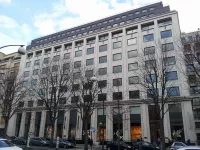
LVMH is a French multinational luxury goods conglomerate formed in...
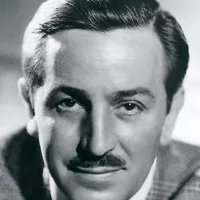
Walter Elias Disney was a highly influential American animator film...
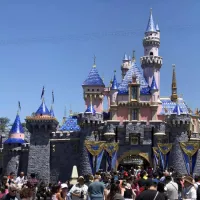
Disneyland located in Anaheim California is the first theme park...
Germany officially the Federal Republic of Germany is a Western...
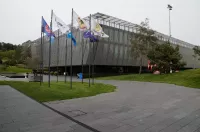
FIFA F d ration Internationale de Football Association is the...
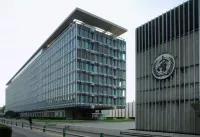
The World Health Organization WHO is a specialized agency of...
Trending
4 months ago Finland Urges US Military Presence Amidst Putin's Actions and Baltic Security Concerns
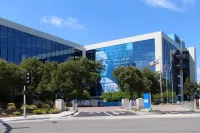
2 months ago Analyst Predicts Apple Deal, Intel Stock Rises, but Impact Questioned.
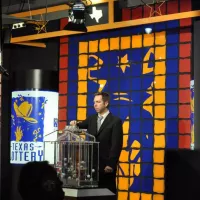
2 months ago Powerball Jackpot Reaches $719M: Winning Numbers Announced November 29th, Check Your Tickets!
3 months ago AI Transforms McKinsey's Business Model and SaaS Pricing Strategies Analyzed.
3 months ago Typhoon Kalmaegi Devastates Philippines: Hundreds Dead, Another Storm Threatens Hope
3 months ago Shanghai: A global coffee hub, witnessing industry growth and viral cafe trends.
Popular

Kid Rock born Robert James Ritchie is an American musician...
The Winter Olympic Games a major international multi-sport event held...

XXXTentacion born Jahseh Dwayne Ricardo Onfroy was a controversial yet...

Melania Trump a Slovenian-American former model has served as First...

Barack Obama the th U S President - was the...
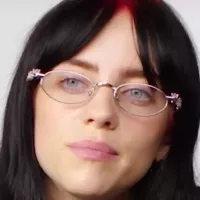
Billie Eilish is a prominent American singer-songwriter who rose to...